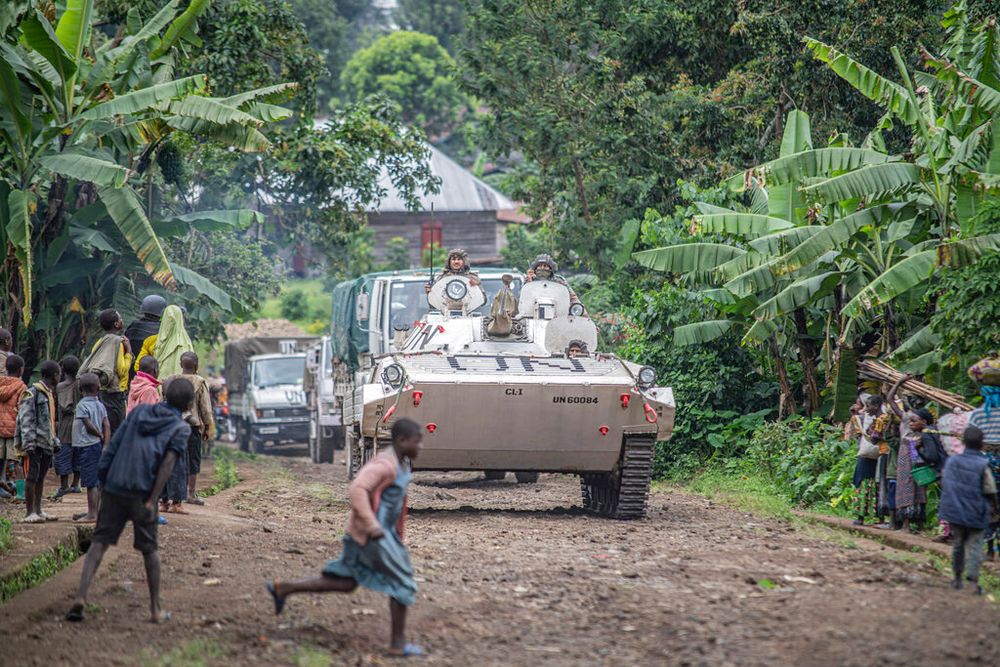
By Olakunle Agboola – The eastern region of the Democratic Republic of Congo (DRC) has long been plagued by a complex web of conflict, instability, and human suffering. Beneath the surface of this seemingly endless crisis lies a landscape shaped by a myriad of factors, including historical legacies, local grievances, and, crucially, the involvement of Western interests.
The roots of the crisis in eastern DR Congo can be traced back to the aftermath of the Rwandan genocide in 1994. The influx of Rwandan refugees and armed groups into the region ignited ethnic tensions and territorial disputes, laying the groundwork for decades of conflict. Western powers, including the United States and European countries, played a significant role in shaping the post-genocide landscape, often prioritizing geopolitical interests over the welfare of Congolese civilians.
One of the primary drivers of the conflict in eastern DR Congo is the region’s vast mineral wealth, including gold, coltan, and tantalum. Western corporations, eager to capitalize on these valuable resources, have been accused of fueling conflict by financing armed groups and exploiting local communities. The pursuit of profit has perpetuated violence, displacement, and environmental degradation, exacerbating the humanitarian crisis in the region.
The strategic importance of eastern DR Congo has also made it a battleground for competing geopolitical interests. Western powers, along with regional actors and multinational corporations, have sought to exert influence and control over the region’s political and economic landscape. This has often involved backing proxy militias, supporting client states, and leveraging economic leverage to advance their agendas, further destabilizing an already volatile situation.
Amidst the geopolitical machinations and resource exploitation, the people of eastern DR Congo continue to bear the brunt of the crisis. Ongoing violence, displacement, and insecurity have led to widespread human rights abuses, including sexual violence, child recruitment, and forced labor. The humanitarian response has struggled to keep pace with the scale of need, leaving vulnerable communities without adequate protection, assistance, and access to essential services.
Addressing the crisis in eastern DR Congo requires a multifaceted approach that addresses the root causes of conflict and promotes sustainable peace and development. This includes holding accountable those responsible for perpetuating violence and human rights abuses, supporting efforts to disarm and demobilize armed groups, and fostering inclusive dialogue and reconciliation processes.
Western media is expected not to keep quiet on the crisis in Congo. Critics have argued that the strategic interest of the Western countries is the reason why the humanitarian abuse in Congo is not considered for editorial decisions and publicity. It is essential for media outlets to recognize their role in shaping public perceptions and to prioritize ethical reporting on global issues, including those that may not always grab headlines.
The crisis in eastern DR Congo cannot be understood in isolation from the broader context of Western interests and geopolitical dynamics. By recognizing and addressing the role of external actors in perpetuating conflict and instability, the international community can play a constructive role in supporting efforts to build peace, strengthen governance, and improve the lives of the Congolese people.
African governments are expected to be proactive and contribute troops and resources to regional peacekeeping missions. This will help maintain security and protect civilians in eastern Congo. Also, the governments will have to work towards strengthening weak institutions, promoting the rule of law, and combating corruption in Congo. Good governance is essential for addressing the root causes of conflict, promoting social cohesion, and ensuring that resources are managed transparently and equitably for the benefit of all citizens.








